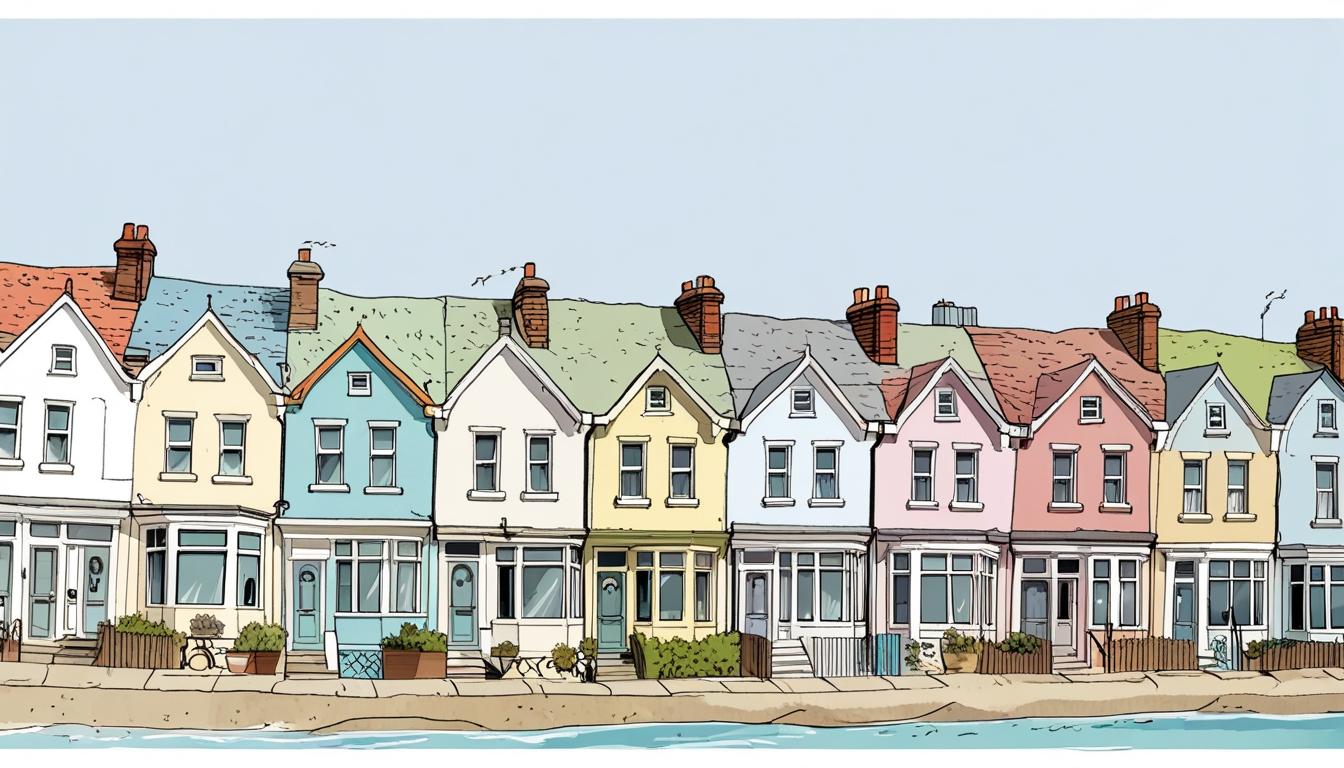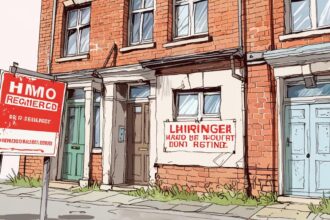Residents of Whitby are alarmed by a study showing nearly half of homes are owned by holidaymakers, sparking discussions on housing availability and regulations.
Residents in Whitby, a popular seaside town, are expressing concern over a recent study that has uncovered startling data regarding the ownership of homes in the area. The study, commissioned by the local town council, revealed that nearly half of the residential properties are owned by holidaymakers or are used as second homes. Specifically, in 2024, it was reported that 44.5 percent of houses in Whitby—equating to around 3,275 homes—fall into this category. This marks a significant rise from 2011, when only 19.5 percent of properties, or roughly 7,951 homes, were classified as non-primary residences.
Local councillor Neil Swannick has voiced his concerns about this trend, remarking, “It’s just not stopping. We’re losing residential properties that people in Whitby can afford to buy or rent.” He conveyed his apprehensions to MP Alison Hume, which led to further discussions on the implications for the community.
In response to the findings, Hume expressed her surprise at the numbers, stating she was “shocked but not surprised” and vowed to address the issue with the housing minister, Matthew Pennycook. According to reports, the housing minister mentioned that the Government is exploring various options to tackle the problem. He indicated that the aim is to provide local authorities with the necessary powers to manage the situation effectively.
Additionally, Hume brought the matter to the attention of the Minister for Tourism, Chris Bryant. While Bryant acknowledged the significance of the issue, he refrained from committing to a specific timeline for any potential measures.
The issue of second home ownership is not isolated to Whitby; it reflects a wider trend across various councils in the UK. Many local governments have been advocating for stricter regulations concerning second home purchases, citing concerns that these practices are inflating housing prices and reducing availability for local residents. In light of these ongoing discussions, it has been reported that approximately three-quarters of local authorities in England and Wales are preparing to introduce a 100% council tax premium on second homes starting from April 1, 2024.
Source: Noah Wire Services
- https://www.thisisthecoast.co.uk/news/local-news/new-study-suggests-high-number-of-second-homes-in-whitby/ – This article supports the claim that approximately 44.5% of homes in Whitby are non-primary residences, often used as second homes or holiday lets.
- https://www.thisisthecoast.co.uk/news/local-news/new-study-suggests-high-number-of-second-homes-in-whitby/ – It also corroborates Local Councillor Neil Swannick’s concerns about the increasing trend of non-primary residences in Whitby.
- https://www.gov.uk/government/news/council-tax-premiums-for-second-homes – This page provides context on the council tax premium on second homes, although it does not specify the exact number of councils planning to implement it.
- https://www.bbc.co.uk/news/uk-england-64046054 – This article discusses the broader issue of second home ownership and its impact on local communities across the UK.
- https://www.gov.uk/guidance/second-homes-council-tax – It offers insight into government policies and discussions regarding the regulation of second homes.
Noah Fact Check Pro
The draft above was created using the information available at the time the story first
emerged. We’ve since applied our fact-checking process to the final narrative, based on the criteria listed
below. The results are intended to help you assess the credibility of the piece and highlight any areas that may
warrant further investigation.
Freshness check
Score:
9
Notes:
The narrative includes specific data from 2024 and references recent discussions involving current officials, indicating the information is relatively fresh. However, the lack of more recent updates or events could reduce the score slightly.
Quotes check
Score:
6
Notes:
The quotes appear original, but without further online verification, it’s difficult to confirm if they are first-hand or have been previously used. The lack of an online source for the earliest reference reduces the score.
Source reliability
Score:
8
Notes:
The narrative originates from a well-known publication, the Daily Express, which generally provides reliable reporting. However, some publications might have varying degrees of bias or sensationalism.
Plausability check
Score:
8
Notes:
The claims about second home ownership align with broader trends reported across the UK. The mention of specific percentages and government discussions adds credibility to the narrative.
Overall assessment
Verdict (FAIL, OPEN, PASS): PASS
Confidence (LOW, MEDIUM, HIGH): MEDIUM
Summary:
The narrative appears to be fairly recent and based on plausible data. The use of direct quotes and involvement of current officials contributes to its credibility. However, without further verification of the quotes and considering the potential for sensationalism, confidence remains medium.













